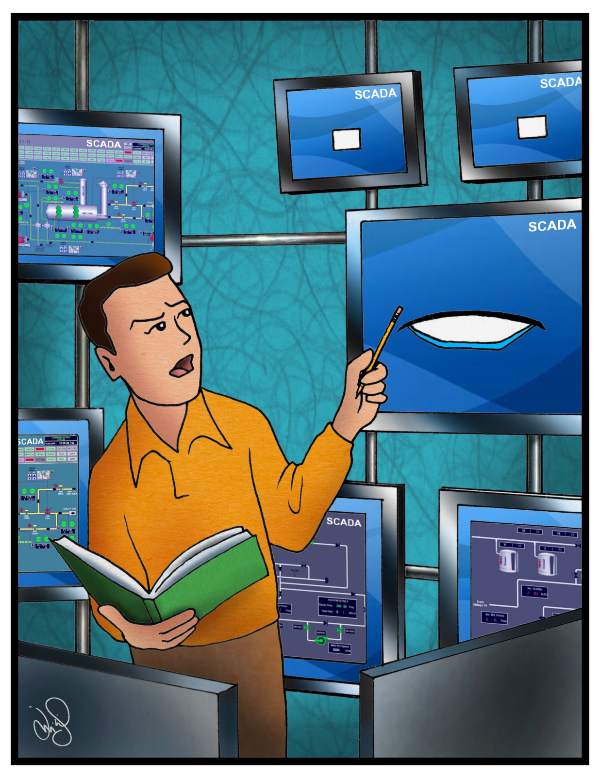What do humans do best? What do computers do best? What should designers of automated systems consider for the allocations of tasks between people and computers?
In 2009 a Chinese pipeline controller who called himself “Qin Dynasty” asked me those questions and I did some research. The purpose of this article is to consider the differences in our capabilities and how that might affect human performance and its impact on pipeline safety. In the book Designing the User Interface by Ben Shneiderman, there is a chart on page 84 where the author outlines what each does best. Do any of those apply to your control room or other tasks?

This article will address several of these capabilities. One thing humans do better than computers is “retrieving pertinent information without a reminder.” Both computers and people have memories, but humans have the ability to access their memories easily. When an operations or maintenance person needs to perform a task that is identical or similar in nature, it is likely that the person will recall the correct steps to perform a task. That is why we recommend that controllers memorize the initial steps or immediate actions in abnormal operating procedures so that there is no delay in a response. This relates to the importance of the use of tabletop scenarios or a simulator in training for response to abnormal or emergency operating conditions. Store the pertinent information in the memory through repetition and it is more easily retrieved when necessary.
One capability of computers is “performing several activities simultaneously.” We think that people have similar abilities, but think about this quote from 10% Happier by Dan Harris:
It’s neuroscience that would say that our capacity to multitask is virtually nonexistent. Multitasking is a computer-derived term. We have one processor. We can’t do it.
Job descriptions of pipeline controllers often include the ability to multitask as a job requirement. Here are some examples from controller job postings:
- Ability to manage real time situations occurring simultaneously in multiple asset areas.
- Expectations include logical thinkers who are multi task oriented, well organized, efficient at information processing and have the ability to consistently make critical decisions quickly and correctly
- Ability to successfully perform multiple tasks with strict deadlines
- Flawless operation of automated systems (SCADA), multitasking, a high level of concentration, and the ability to remain focused under highly stressful situations.
- Must be able to handle stressful situations and multi-task with different operations occurring on different pipelines at the same time
My understanding is that we can condition our brains to switch from one task to another quickly, but there is a “switching cost” and we may miss important pieces of information during the switching. In addition, we can lose our place in the first task during the switch to the second task. It then takes longer to resume the first task and we might make a mistake. How well do you perform several activities simultaneously? It is likely that the multitasking from our self-imposed distractions with our mobile devices and distractions from others is contributing to reduced abilities to concentrate on more important tasks at work. Do not “multitask” yourself into an error.
A computer or machine is better at “maintaining performance over extended periods of time.” That is why a SCADA system is perfect for acquiring, displaying, and storing data. A human can not sustain attention for long periods of time. Companies do not have to provide computers the opportunity for eight hours of sleep between shifts and do not have to set limits on hours of service for the computers, although it is prudent to have back-up computers in case of failures.
Even though companies have job requirements that controllers focus on all aspects of the work environment, maintain full awareness at all times, and be capable of quickly processing and reacting to incoming information, it is computers that are better at those items. It is critical that the Human-Machine Interface be designed and implemented to provide support to the human user in those particular times when he or she has to perform based on the information that the computer has and is providing.
For humans excel at “acting in unanticipated emergencies and novel situations” and “concentrating on important tasks when overload occurs.” It should be simple to understand why the Control Room Management and Operator Qualification regulations place such an emphasis on preparations for and response to abnormal operating conditions and emergency operations. Pipelines are highly automated and rely on computerized devices and equipment for control and monitoring of operations. It is true that machines and computers do some things better than humans. Programmers can develop PLC programs and SCADA commands for pipeline operations. Of course, programmers are not flawless since they are human and susceptible to errors just like controllers.
As a result of technological advances, there are fewer humans in field operations now than in the 1960s when I began my pipeline career. The humans are mostly in centralized control centers where they rely on computers, remote equipment, programs, and data communications. To an uninformed observer, it may appear that controllers are doing very little sitting there at their fancy consoles in their ergonomically correct chairs in front of an array of computer displays. It is when those computers, remote equipment, programs, or data communications fail that the human ability to act and adapt and set priorities in the face of competing demands is critical. It is those areas in which people can excel.
The humans and the computers are necessary for pipeline operations and pipeline safety. Make sure your CRM procedures and other procedures are written and implemented to include what humans do best and what computers do best. Build in safeguards, reviews, change management requirements, and communications protocols to ensure that all systems work as designed and all people involved follow all requirements.
Charles Alday © 2015 Please Distribute to Others.




